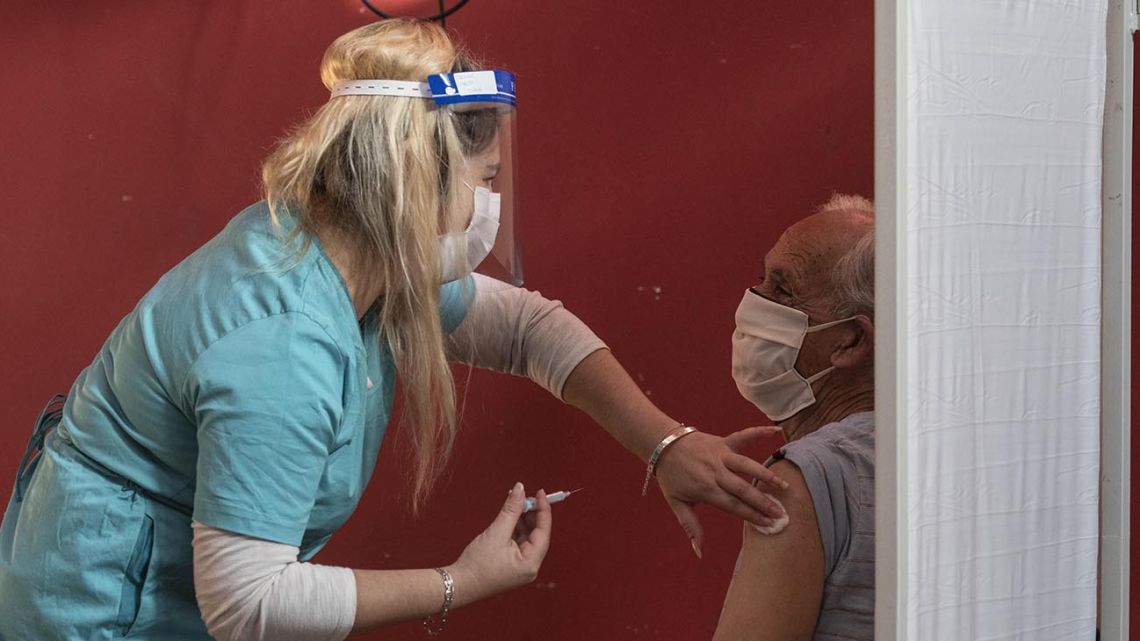
[ad_1]
A British study conducted by the Birmingham University in collaboration with the UK Public Health Agency have shown that postponing the second dose of the coronavirus vaccine for three months increases vaccination.
Research has revealed that antibodies against Sars-CoV-2 were 3.5 times higher among those who received the second dose of a COVID-19 vaccine after 11 to 12 weeks compared to those who received it after an interval of three weeks.
The scientist Helene parry, lead author of the study published in the Nature magazinesaid: “We have shown that the maximum antibody responses after second Pfizer vaccination increase dramatically in older people delayed 11 to 12 weeks. We see a marked difference between these two programs in terms of antibody responses. “
In front of a limited supply of vaccines, the UK embarked on a public health experiment at the end of 2020: delaying the second doses of COVID-19 vaccines in order to maximize the number of people who would be at least partially protected against hospitalization and death.
Nicolás Kreplak said that “nothing happens” if the second dose of the vaccine is applied after 3 months
The measure was controversial because drug regulators approved the Pfizer / BioNTech and Oxford / AstraZeneca vaccines based on clinical trials that spaced doses apart by just three to four weeks.
Researchers from Oxford University demonstrated in February that antibody responses were more than twice as strong when your reinforcements the vaccine was delayed for 12 weeks.
The latest study is the first to compare immune responses after different intervals between doses of Pfizer / BioNTech vaccine. This is the first direct study of how the delay affects the levels of antibodies against the coronavirus and it could inform vaccine planning decisions in other countries, the authors say.
“This study further supports a growing body of evidence that UK approach to delay second dose has really paid off“, He said Gayatri Amirthalingam, epidemiologist at the British Public Health Agency in London and co-author of the project, at a press conference.
Many COVID-19 vaccines are given in two doses: the first initiates an immune response and the second application of ‘reinforcement ‘strengthens it.
How was the study carried out
On December 30, the UK announced it would delay the second dose for up to 12 weeks after the first. Time later, Argentina made same decision due to vaccine shortage. To determine if the delay was worth it, Amirthalingam and his colleagues studied 175 vaccinated over 80 years old who received their second dose of Pfizer vaccine, either 3 weeks or 11 to 12 weeks after the first dose.
The team measured levels of receptor antibodies against the SARS-CoV-2 spike protein and assessed how immune cells called T cells, which can help maintain antibody levels over time, responded vaccination.
The antibody peaks were 3.5 times higher in people who waited 12 weeks for the booster than in people who waited only three weeks.
Infectologist on the words of Kreplak: “We must respect the indications of the laboratories”
The maximum response of objective T it was lower at those with the extended interval. But that did not cause antibody levels to drop any faster in the nine weeks following the booster.
The the results are reassuring But they are Pfizer vaccine specific, which is not available in many low- and middle-income countries, says Alejandro Cravioto, Chairman of the Strategic Advisory Group of Experts on Immunization World Health Organization.
Countries, he said, will need to consider whether the variants circulating in their particular region could increase the risk of infection after a single dose of vaccine.
ED CP
You may also like
[ad_2]
Source link
 Naaju Breaking News, Live Updates, Latest Headlines, Viral News, Top Stories, Trending Topics, Videos
Naaju Breaking News, Live Updates, Latest Headlines, Viral News, Top Stories, Trending Topics, Videos